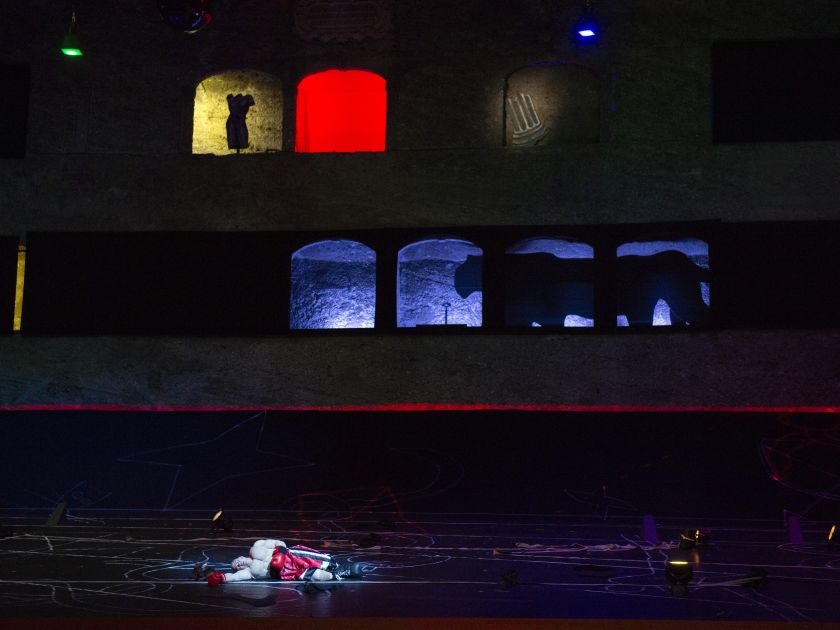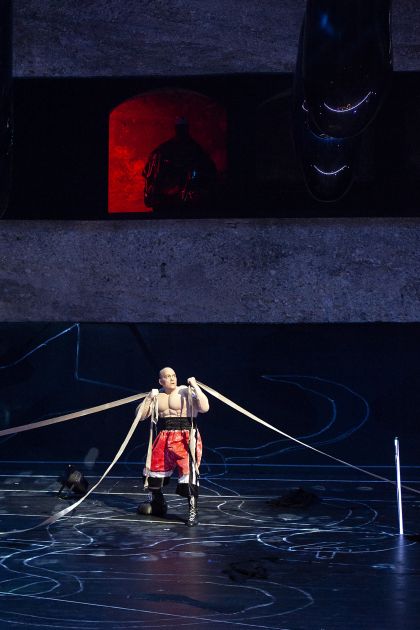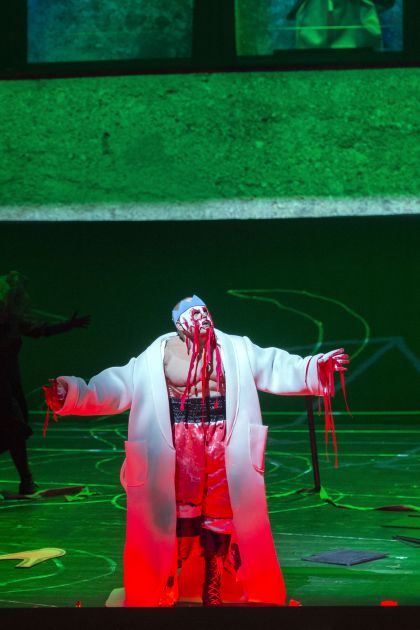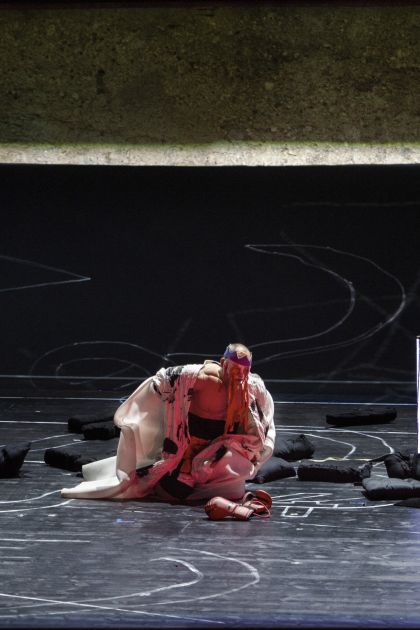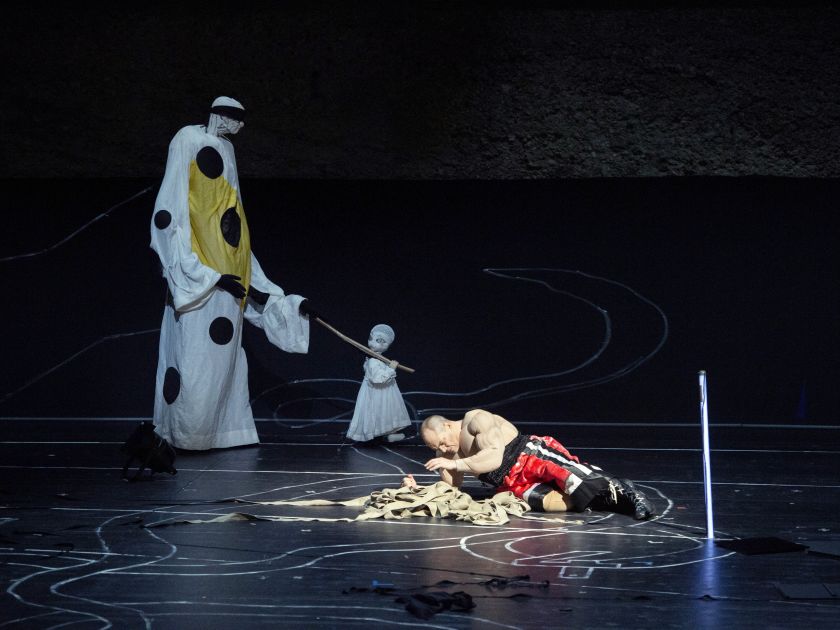It was a cry that took hold of George Enescu and would not let him go again. The cry uttered by the blinded Oedipus, as played by Jean Mounet-Sully in a performance of Sophocles’ tragedy at the Comédie-Française in 1909. Enescu became obsessed by the subject matter and the notion of making an opera out of it. Shortly afterwards, in 1910, he started work on an initial series of musical sketches, but his relentless concert schedule as a celebrated violin virtuoso meant that it would be another twenty-six years before his tragédie lyrique Œdipe was first performed in Paris on 13 March 1936.
Through the offices of the critic Pierre Lalo, Enescu became acquainted with the poet Edmond Fleg, who had already supplied the libretto for Ernest Bloch’s Macbeth. Fleg came up with a four-act libretto after a first version that divided the piece between two evenings had been rejected. The first two acts are Fleg’s invention, drawing on familiar sources that cover the events preceding the drama, from the birth of Oedipus to his arrival in Thebes. The two final acts, with minor changes, consist of Sophocles’ Theban tragedies Oedipus Rex and Oedipus at Colonus. In the first two acts — containing the famous prophecy and the presaged acts of patricide and incest — Oedipus is part of his destiny. In the third and fourth acts he is confronted with his destiny as an external force.
Thus at the beginning the focus is on Oedipus as a human being. This becomes most explicit in the riddle scene with the Sphinx. Here Edmond Fleg changed the question, but not the answer. Traditionally the Sphinx asks: What walks in the morning on four legs, at noon on two and at the close of day on three? In the libretto, however, the question is: What is greater than Fate? Oedipus answers: ‘Man’, whereupon the Sphinx dies, with breath-taking vocal exertion, while ‘laughing and sobbing’. Her final words are: ‘The future will tell you whether the dying Sphinx beweeps her defeat or laughs at her victory.’ The subsequent path of the tragedy calls into question whether Oedipus’ answer is true. The great human questions of free will and self-determination, of guilt and redemption, remain open. At least Oedipus is released by a gentle death, the ‘implacable god’ Apollo displaying something like pity for the human individual suffering at the hands of his fate.
For his Œdipe George Enescu created a grandiose musical cosmos, which at its time — the mid-1920s — while it could hardly be called avant garde, was in fact innovative. Although it is scored for large forces including many special instruments, the singing voices are not overwhelmed. ‘The instruments speak here a strange language, direct, frank and grave, which does not owe anything to the traditional polyphonies’, wrote the French music critic Émile Vuillermoz. It was in fact a matter of great importance to Enescu that the text should be clearly comprehensible: the music must respect the text, but transform it rather than simply being subject to it. For Enescu, the composer of opera was like a jeweller making a setting for a precious gem — the gem being the plot, the dramatic conflict.
Enescu’s vocal inventions gave the work wonderful parts, first and foremost that of Œdipe for deep baritone, but also for Jocaste (mezzo-soprano), Sphinge (contralto) and Antigone (soprano). Referring to the part of Œdipe, who is on stage constantly during the second part, Enescu wrote to the conductor of the first performance, Philippe Gaubert: ‘The role of Oedipus is challenging. I have orchestrated it as lightly as I can, so that he is able to pace himself.’ However, Enescu’s efforts to secure Feodor Chaliapin as Oedipus for the first performance came to nothing because of the huge demands of the part.
Klaus-Peter Kehr
Translation: Sophie Kidd

